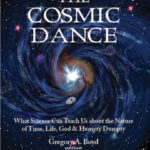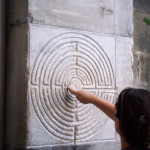We run our website the way we wished the whole internet worked: we provide high quality original content with no ads. We are funded solely by your direct support. Please consider supporting this project.
What is Open Theism?
Open Theism is the view that God chose to create a world that included free agents, and thus a world where possibilities are real. The future is pre-settled, to whatever degree God wants to pre-settle it and to whatever degree the inevitable consequences of the choices of created agents have pre-settled it. But the future is also open to whatever degree agents are free to resolve possibilities into actualities by their own choices.
In the open view, God knows everything perfectly, including the future. But since the future is partly comprised of possibilities, God knows it as partly comprised of possibilities.
This doesn’t in any way take away God’s sovereignty, for in the open view, God has unlimited intelligence. While beings with limited intelligence are more prepared for certainties than possibilities (because the more possibilities they have to anticipate, the thinner they have to spread their intelligence), the infinitely intelligent God is just as prepared for each and every future possibility as he is a certainty. Whatever comes to pass, God has been anticipating that very event from the foundation of the world as though it had to occur. It’s just that in the open view, God is so smart, it didn’t.
People sometimes worry that if the future isn’t foreknown as exhaustively settled, God can’t promise to bring good out of evil or defeat evil altogether in the end. Without knowing it, however, people who worry in this way are insulting God’s intelligence. If we trust that God’s intelligence is unlimited, we can remain confident that whatever comes to pass, however evil, God has been from the foundation of the world setting up a plan to respond to it. And we can affirm this without having to suggest that evil was originally part of his plan.
The open view has many positive implications for believers. It allows us to affirm that evil is not in any sense part of God’s plan for our lives, even though he perfectly anticipates it and can promise to redeem good out of it. It also means that our lives really make a difference. In the open view people have genuine “say-so” in what comes to pass. Things really depend on what humans do, including whether or not people pray.
For more on this, see G. Boyd, God of the Possible (Baker, 2000).
Category: Q&A
Tags: Open Theism, Q&A
Topics: Open Theism What it is and is not
Related Reading

How do you respond to Acts 13:48?
“When the Gentiles heard this [preaching], they were glad and praised the word of the Lord, and as many as had been destined for eternal life became believers.” Luke does not specify when the Gentiles who believed were “destined for eternal life.” Calvinists rightfully point out that the Gentiles’ faith followed their being “destined for…

Roger Olson’s Review of The Cosmic Dance
Today we wanted to share a review of The Cosmic Dance by esteemed theologian Roger Olson. You can check out an excerpt below or you can read the whole review here. You can place an order for The Cosmic Dance here. The Cosmic Dance is Greg’s (and friends’) attempt to present the case that the best contemporary science supports viewing…

What is the significance of Ezekiel 33:13–15?
“[W]hen I say to the righteous he will surely live, and he so trusts in his righteousness that he commits iniquity, none of his righteous deeds will be remembered…he will die. But when I say to the wicked, ‘You shall surely die,’ and he turns from his sin and practices justice and righteousness, if a…

Problems with the Simple Foreknowledge View
Some have proposed a model of divine foreknowledge which allows them to avoid the dilemma of affirming either that God creates people for the purpose of sending them to hell (Calvinism) or that he creates them without certain knowledge of their fate (open theism). In this alternative view God knows that certain individuals will be…

Does God Exist Outside of Time?
Our friend Jeremy Jernigan wrote something recently that we wanted to share with you today. Jeremy is the author of Redeeming Pleasure and Teaching Pastor at Central Christian Church in Arizona. He blogs regularly at TomorrowsReflection.com. He’s the husband to Michelle and dad to five amazing little kids. You can connect with him on Twitter,…

Lord Willing? Part 2
In Part 2 of Greg’s interview of Jessica Kelley about her book Lord Willing?, they discuss the theology that helped Jessica through her son Henry’s illness and death. You can find Part 1 of the interview here, and part 3 here.
